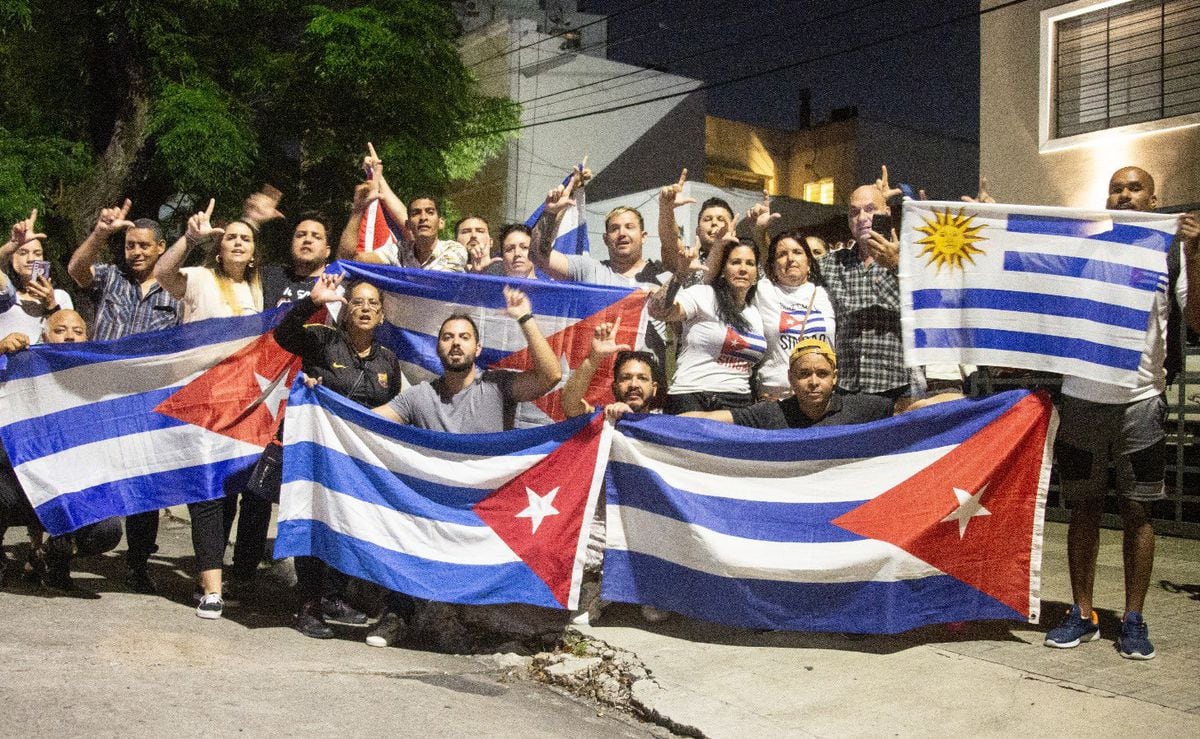Icon: enlarge
Single parent in the pandemic: Ina Salewski is urgently waiting for an au pair
Photo: Theodor Barth / DER SPIEGEL
Perhaps Allysa Irwansyah would know by now that many Germans - unlike in their imagination - do not get angry at all when you speak to them in English.
That the leaves really do fall from the trees in autumn and do not stay green, like at her home in Depok, barely an hour from the Indonesian capital Jakarta.
For more than half a year, the 19-year-old has been waiting for her adventure, as she calls it, to begin her life after high school.
While her friends are studying, she helps her mother with laundry and cooking.
The pandemic has thwarted their dreams.
"Of course I'm down," she says.
Icon: enlarge
Allysa Irwansyah is waiting in Depok, Indonesia, to finally start her au pair position in Germany
Actually, Allysa Irwansyah should have been living 14,000 kilometers away as an au pair in North Rhine-Westphalia for several months, with Ina Salewski * and her two children, three and six years old.
The 36-year-old political scientist works as a civil servant.
Every week she has to reschedule the afternoons: Can the grandparents or friends pick up the children from school or kindergarten?
When is the babysitter coming?
Who goes to the dentist?
In addition, there are parents' evenings at school and kindergarten, the school closes, a child gets a fever.
“I'm lucky to have a very good network, that helps a lot,” says Salewski.
"Nevertheless, my everyday life is like in a large improvisational theater."
Icon: enlarge
Ina Salewski with her children: "Let's consider what it would be like if someone from another country moves in with us"
Photo: Theodor Barth / DER SPIEGEL
That's why she decided in January to take on an au pair.
She had said to her children: "Let's think about what it would be like if someone from another country moved in with us."
Seven months have passed since then.
On April 21, Allysa had an appointment at the German Embassy in Jakarta.
Five days earlier she received an email with lots of exclamation marks: "Your appointment has been postponed indefinitely!"
The new appointment on July 23 was canceled just under three weeks beforehand.
Actually, the corona entry restrictions for employees and volunteers have been gradually lifted since April: harvest workers, care workers and foreign students were able to re-enter Germany.
For au pairs from countries that do not belong to the European Economic Area,
that was not true.
It has only been a few days since November 18 that prospective au pairs who want to stay here longer than six months have been able to apply for visas again.
Nevertheless, host parents like Ina Salewski and au pairs like Allysa fear that it will be months before they can really live together.
On request, the Federal Foreign Office informs that the visa offices are currently only working to a considerable extent.
And on the websites of the German embassies in Jakarta or Hanoi, for example, you cannot yet make the selection again
Meet the »au pair visa«.
The fact that many au pairs were virtually locked out for months underlines the low importance of working parents in Germany for Lene Borgers from the Federal Au Pair Society.
She estimates that there are 20,000 to 30,000 host families with au pairs in Germany.
Around two thirds come from the European Union (EU), so Borgers, and therefore do not need a visa.
Last year, more than 9,000 visa applications were submitted from non-EU countries, according to the Federal Employment Agency.
“A five-year-old child can perhaps do two hours alone.
A two-year-old can't do that. "
Ina Salewski
The corona pandemic has once again provided a kind of autopsy report on the status of childcare in Germany.
The result: the assumption still seems to be that at least one parent can always look after the children.
It was not until April 27, for example, almost six weeks after schools and daycare centers were closed, that single parents like Ina Salewski could have their children looked after in North Rhine-Westphalia.
An aspect that still remains completely incomprehensible to the young widow: »Even working from home would simply not have been possible: A five-year-old child can perhaps do two hours alone.
A two-year-old can't do that, ”she says.
Eight million families with minor children live in Germany.
19 percent of them are single parents, i.e. mothers or fathers who live alone with their children in the household, writes the Federal Ministry of Family Affairs.
Lene Borgers can determine a social change based on the inquiries and her customers.
She has been running an au pair agency in Trier for 18 years and looks after around 100 families, including Ina Salewski and Allysa Irwansyah.
Almost 30 percent of her customers are now single parents and all women work, she reports.
When she started her agency, none of her clients worked full-time, they were all in partnerships.
Icon: enlarge
Ina Salewski in front of her house
Photo: Jann Höfer
Their customers are now very different: teachers, doctors, carer couples on shift work, nurses.
What the families have in common: They must have an extra room that is at least ten square meters.
You have to reckon with around 500 euros per month for an au pair plus food and free living.
Salewski knows how much easier childcare is in a partnership.
Until last year she had shared childcare with her husband, "pari pari," as she says.
One summer's day when they were about to go on vacation to France with their suitcases already packed in the hall, her husband died unexpectedly.
Since then Ina Salewski has tried to gain a foothold again.
"We're still trying to cope with everyday life anew, in a life without my husband, without the father of my children," she says.
Salewski doesn't just have to work to make money, she wants to.
But the opening times of many schools, after-school care centers and daycare centers are not at all compatible with most full-time positions.
They are even more restricted during the pandemic.
"We are still trying to cope with everyday life anew, in a life without my husband, without the father of my children."
Ina Salewski
Allysa has two younger siblings who are ten and fourteen years old.
But she is not educated.
Au pair positions are an opportunity for young women like Allysa to get to know another culture and to learn German.
Then she wants to study international relations or do an apprenticeship.
Their big advantage, especially for single parents with little family ties: au pairs are there, can bridge an hour, pick up the children - exactly what Ina Salewski would help.
The two had chosen each other in March through questionnaires and Skype conversations.
Allysa thought it was good that Ina, unlike other families, had not marked washing up and washing clothes in the to-dos.
The two blonde children looked cute, she likes Ina.
Ina thought it was nice that Allysa answered the question "Why do you want to go to Germany?": "Because I want to experience four seasons."
Ina Salewski usually leaves her house with the girls at eight o'clock in the morning, she goes to work, the children to school or kindergarten.
14,000 kilometers and a time difference of six hours, Allysa is sitting cross-legged on her bed, next to her a friend from the German course.
That evening, the two of them want to have a slumber party.
You have passed your A1 certificate and are considering taking another course or streaming German music and series on the Internet in order to prepare for the year abroad.
Icon: enlarge
Allysa Irwansyah: "I'll be the first in my family to live abroad"
Photo: private
In this way, Allysa has also improved her English, which is why she talks like in an American evening series.
"I want to discover the world," she says and laughs.
"I'm the first in my family to live abroad."
In August, when she was supposed to be living with Ina Salewski's family, she started making scented candles in her children's room.
She is now selling them on Instagram.
An occupation and a small job - until she can eventually fly to Germany.
* The conversation partner would like to remain anonymous, her real name is known to the editors.
Icon: The mirror
This contribution is part of the Global Society project
What is the Global Society project? Up arrow Down arrow
Under the title Global Society, reporters from
Asia, Africa, Latin America and Europe
report on injustices in a globalized world, socio-political challenges and sustainable development.
The reports, analyzes, photo series, videos and podcasts appear in the international section of SPIEGEL.
The project is long-term and will be supported by the Bill & Melinda Gates Foundation (BMGF) for three years.
A detailed FAQ with questions and answers about the project can be found here.
What does the funding look like in concrete terms? Up arrow Down arrow
The Bill & Melinda Gates Foundation (BMGF) is supporting the project for three years with a total of around 2.3 million euros.
Is the journalistic content independent of the foundation? Up arrow Down arrow
Yes.
The editorial content is created without any influence from the Gates Foundation.
Do other media have similar projects? Up arrow Down arrow
Yes.
Major European media outlets such as "The Guardian" and "El País" have set up similar sections on their news pages with "Global Development" and "Planeta Futuro" with the support of the Gates Foundation.
Have there already been similar projects at SPIEGEL? Up arrow Down arrow
In recent years, SPIEGEL has already implemented two projects with the European Journalism Center (EJC) and the support of the Bill & Melinda Gates Foundation: The "Expedition The Day After Tomorrow" on global sustainability goals and the journalistic refugee project "The New Arrivals", as part of this several award-winning multimedia reports on the topics of migration and flight have emerged.
Where can I find all publications on Global Society? Up arrow Down arrow
The pieces can be found at SPIEGEL on the topic Global Society.











/cloudfront-eu-central-1.images.arcpublishing.com/prisa/KMEYMJKESBAZBE4MRBAM4TGHIQ.jpg)



